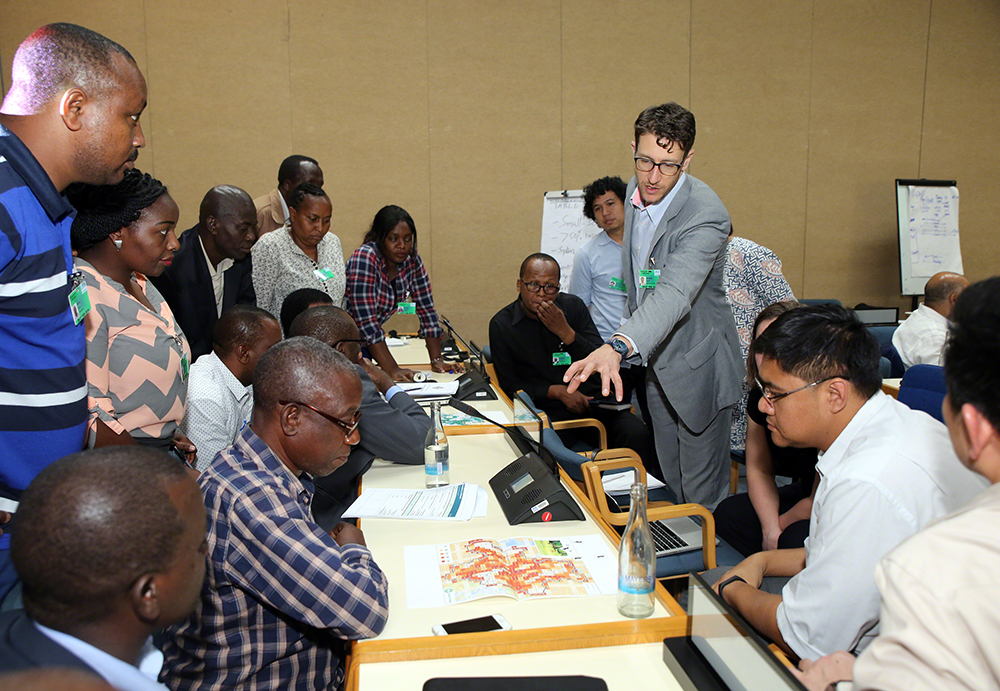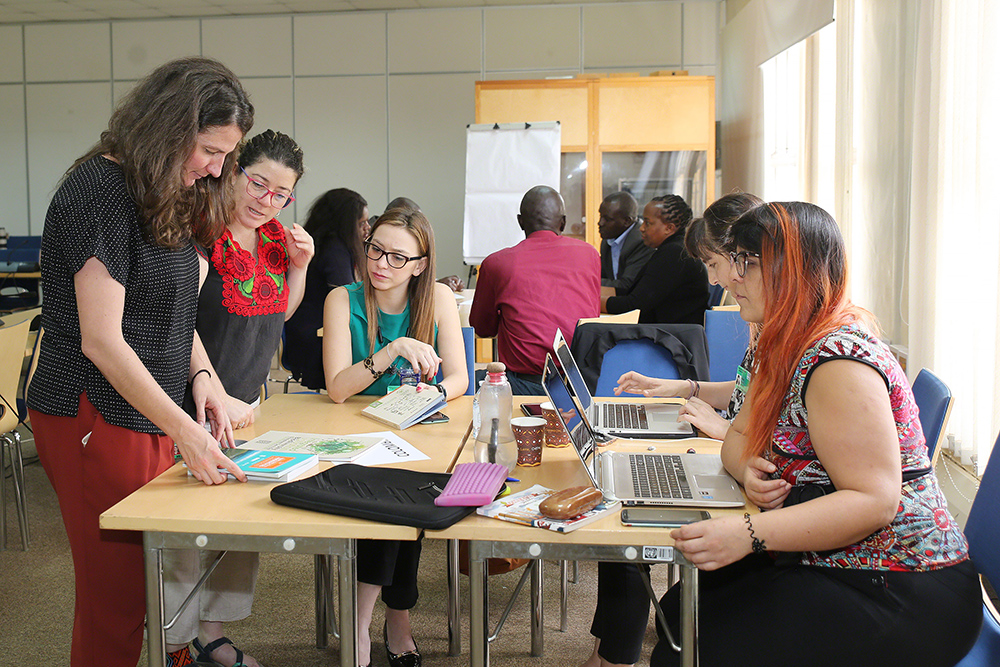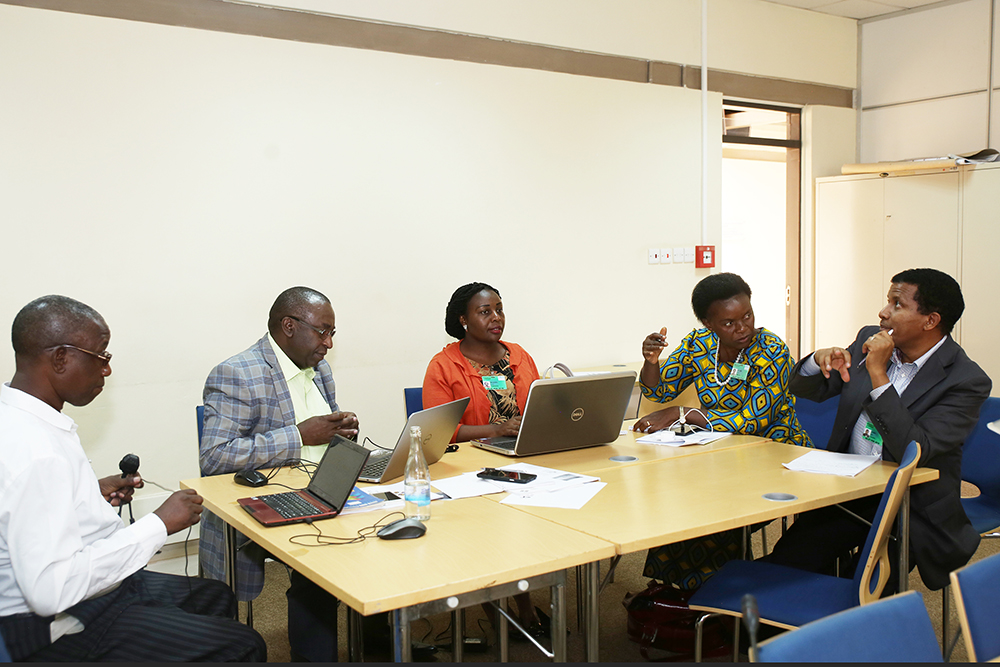In the afternoon, discussions continued in two breakout groups. The first session comprised a training on TEEB scenarios and modelling tools and brought together partners from the International Climate Initiative and EU Partnership Instrument projects. A second group discussed recommendations to be included in a forthcoming publication addressing policy options to improve livelihoods in Africa, drawing on four African case studies funded by the European Commission Directorate-General for International Cooperation and Development (DEVCO).
During a brief closing plenary, Alexander Müller, TEEBAgriFood Study Leader, thanked participants for their hard work and remarked that the end of this Symposium “is not the end of our work, but the beginning.”
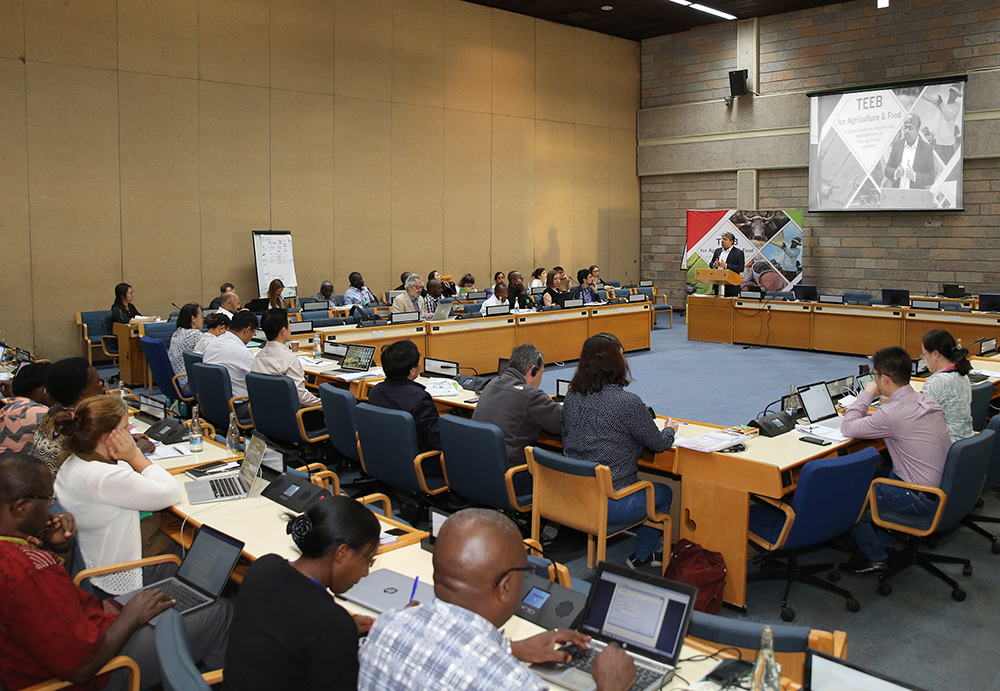
Room view of the Symposium
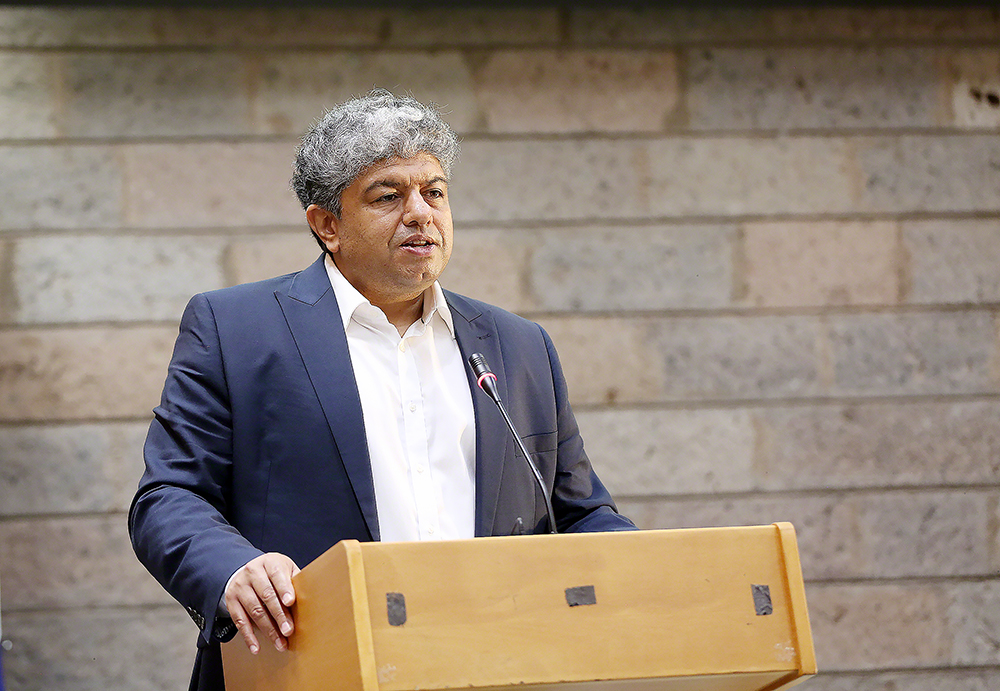
Salman Hussain, TEEB
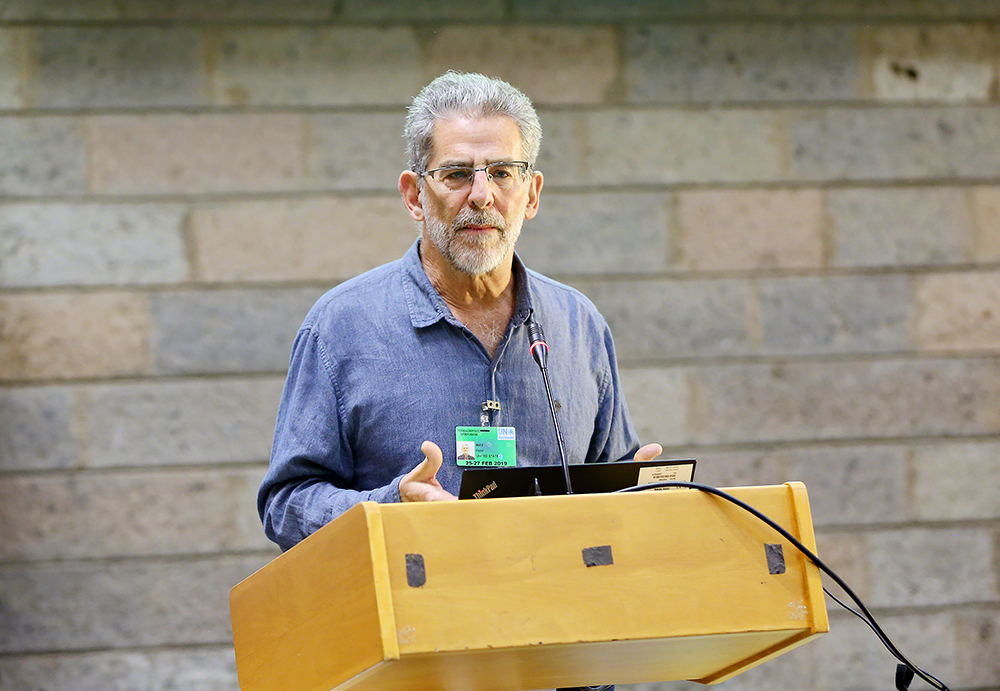
Peter May, Federal Rural University of Rio de Janeiro, Brazil
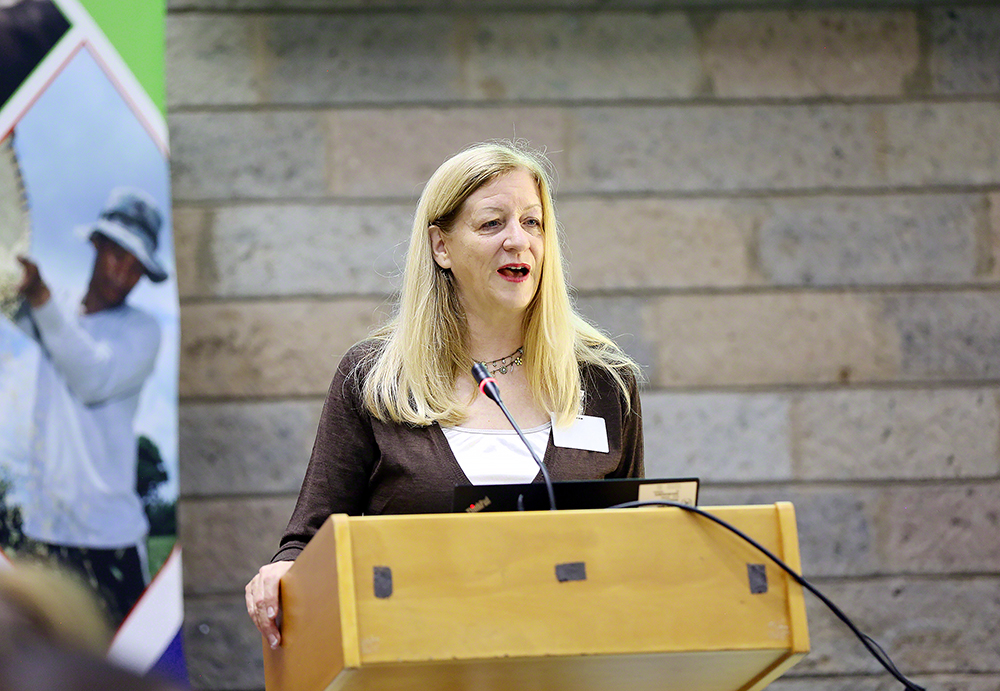
Barbara Gemill-Herren, World Agroforestry Centre (ICRAF)
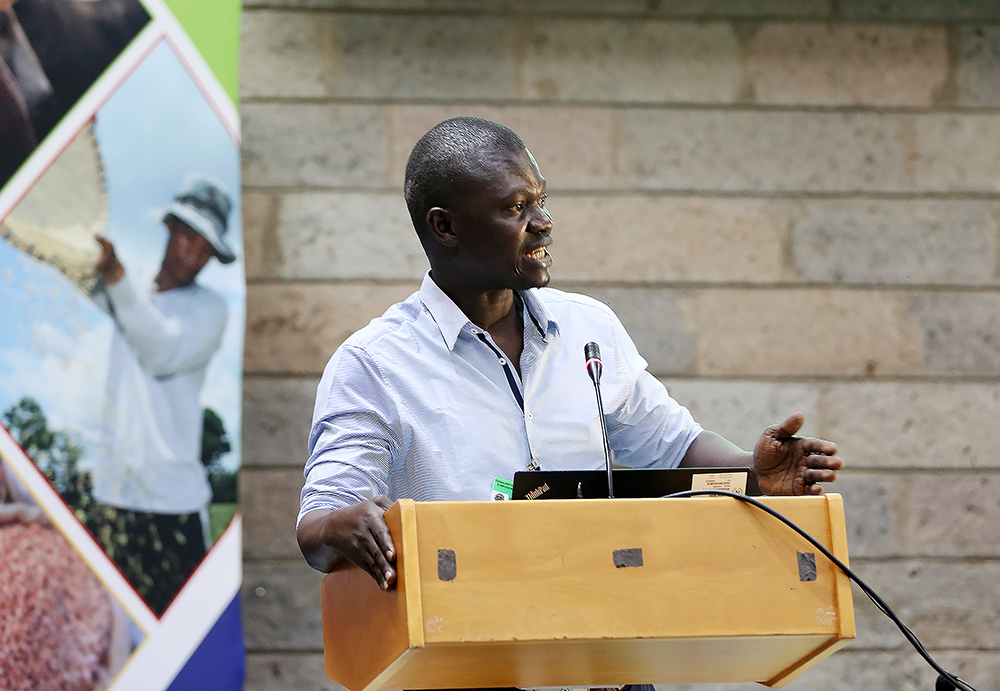
Jean Michel Waly Sene, Environmental Development Action in the Third World (ENDA Pronat)
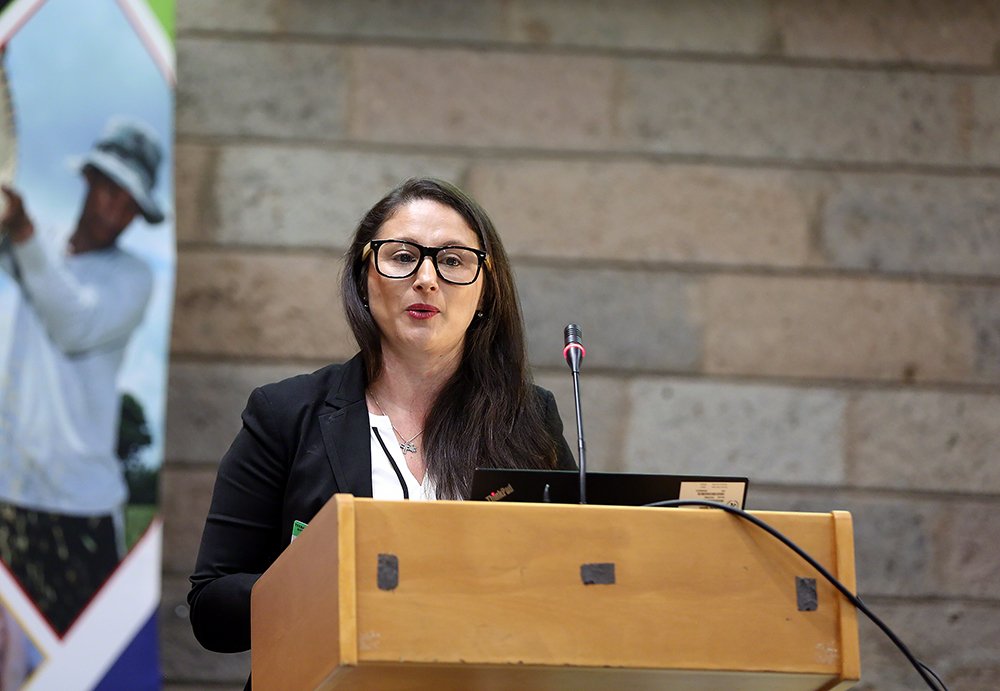
Carla Susana Assuad, Millennium Institute
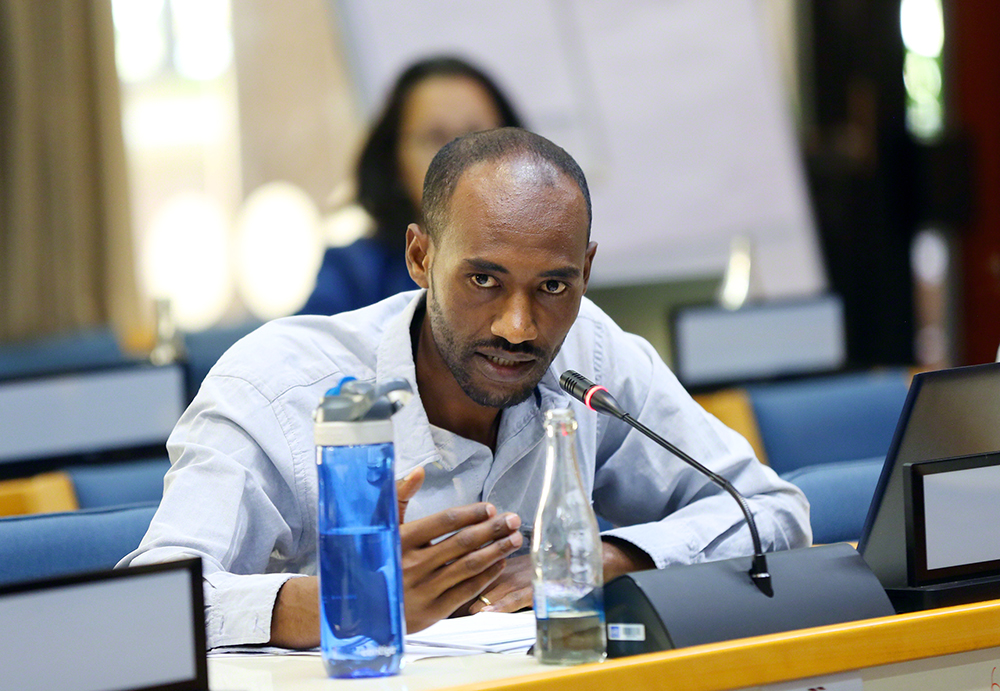
Tolosa Yadessa Terfa, Ethiopia
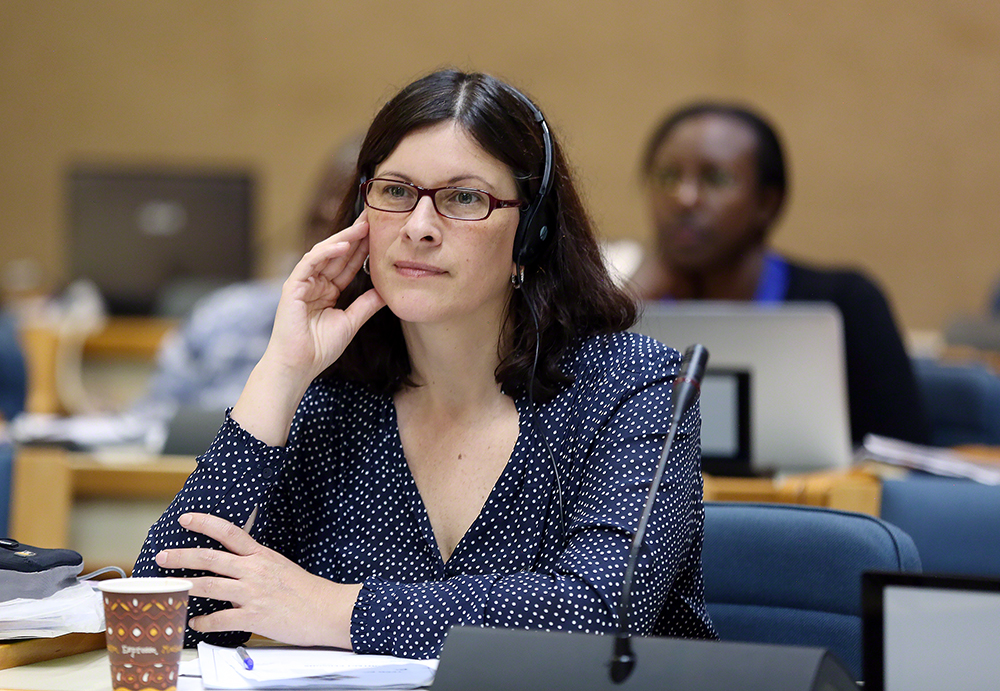
Esmeralda Urquiza, La Comisión Nacional para el Conocimiento y Uso de la Biodiversidad (CONABIO)
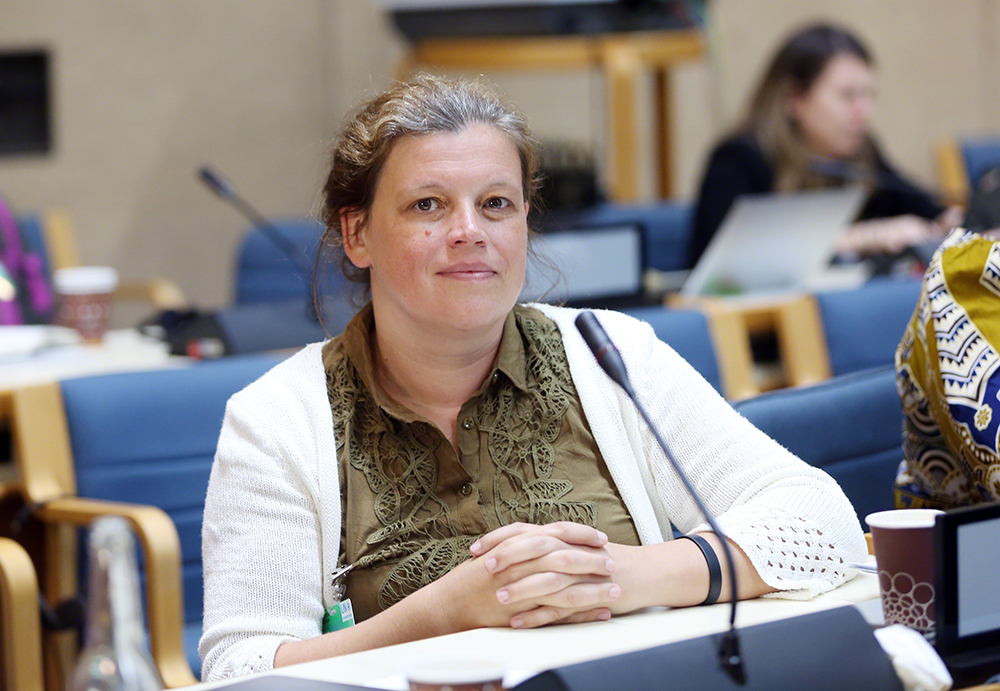
Celine Termote, Bioversity International
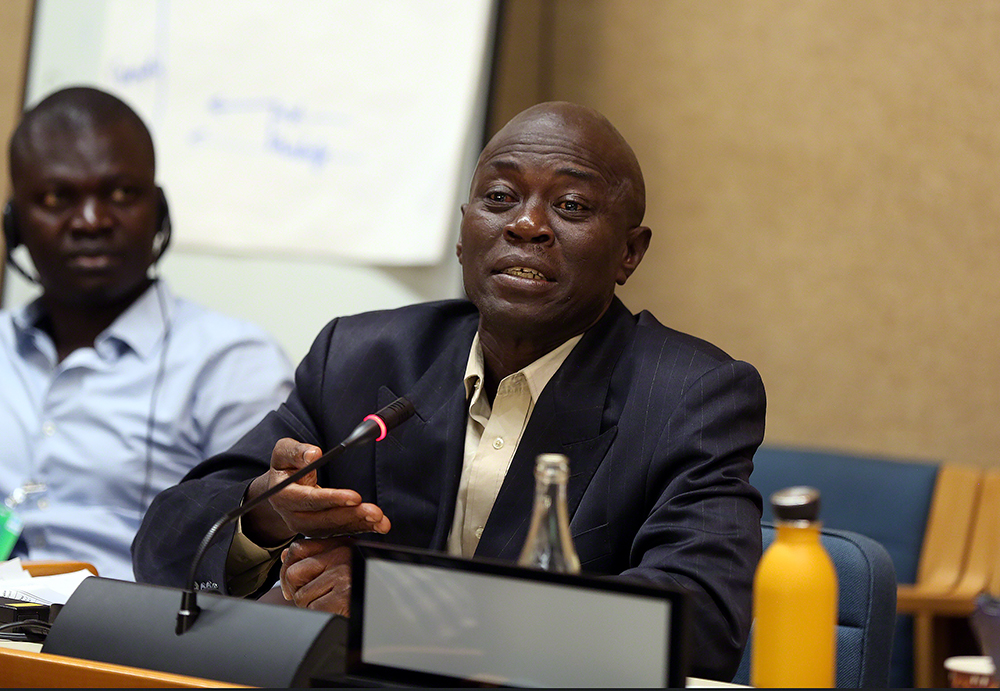
Edward Amankwah, African Centre for Green Commodities
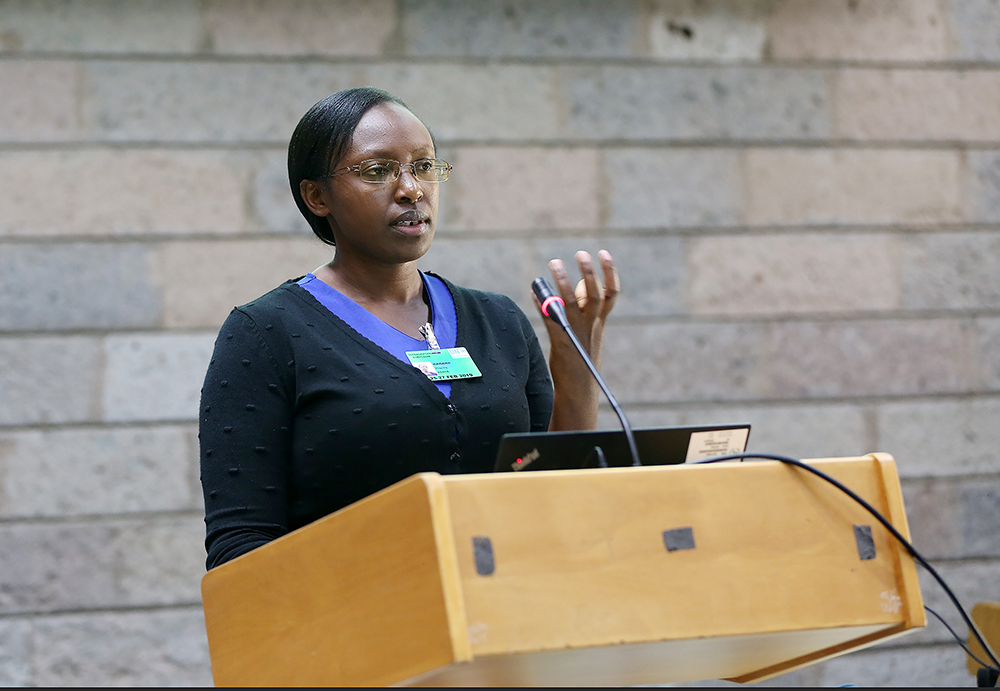
Priscilla Wainaina, ICRAF
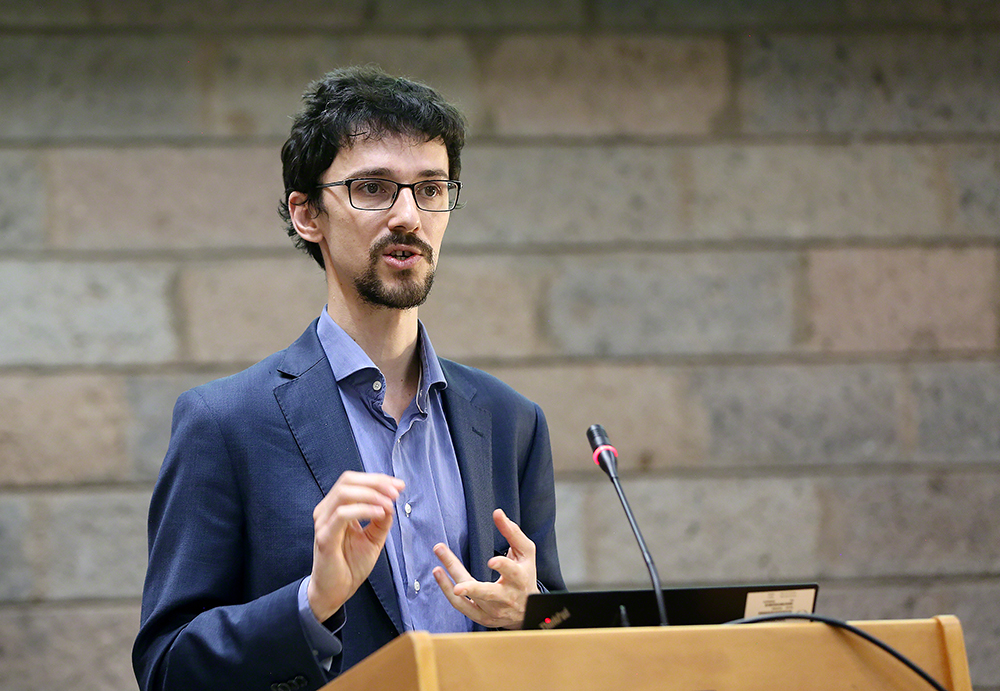
Pietro Galgani, True Price/Impact Institute
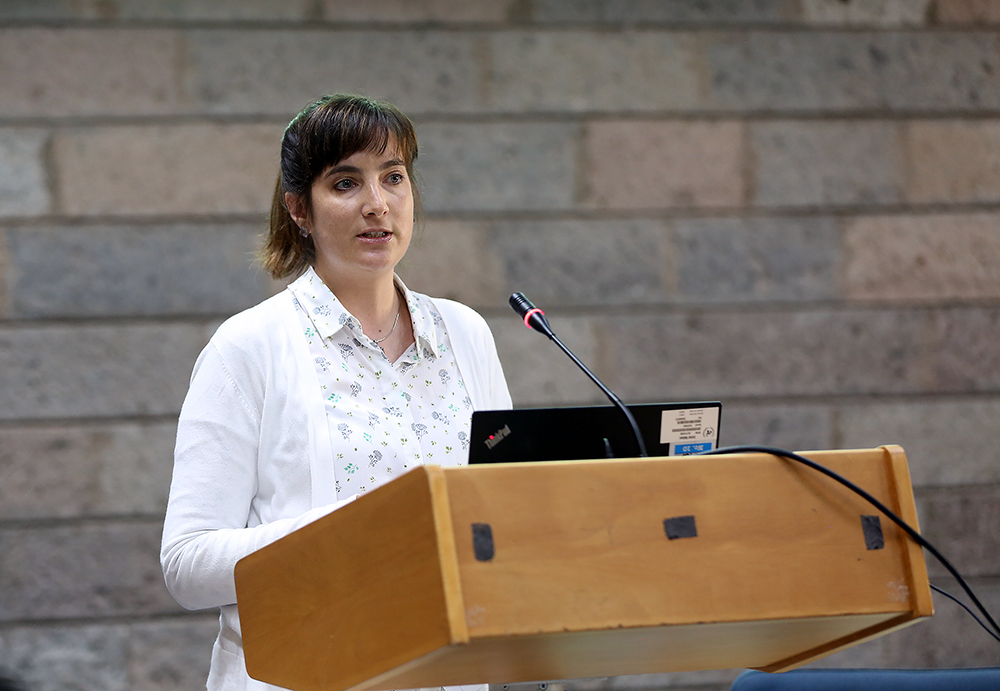
Yoanna Kraus Elsin, Humboldt Institute
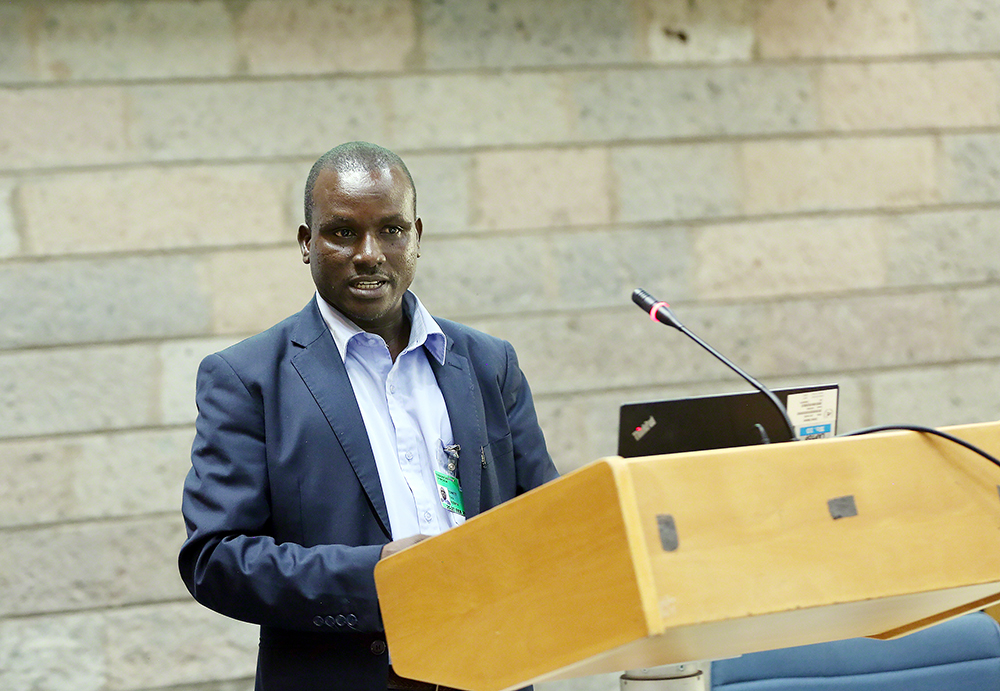
Taita Terer, National Museums of Kenya
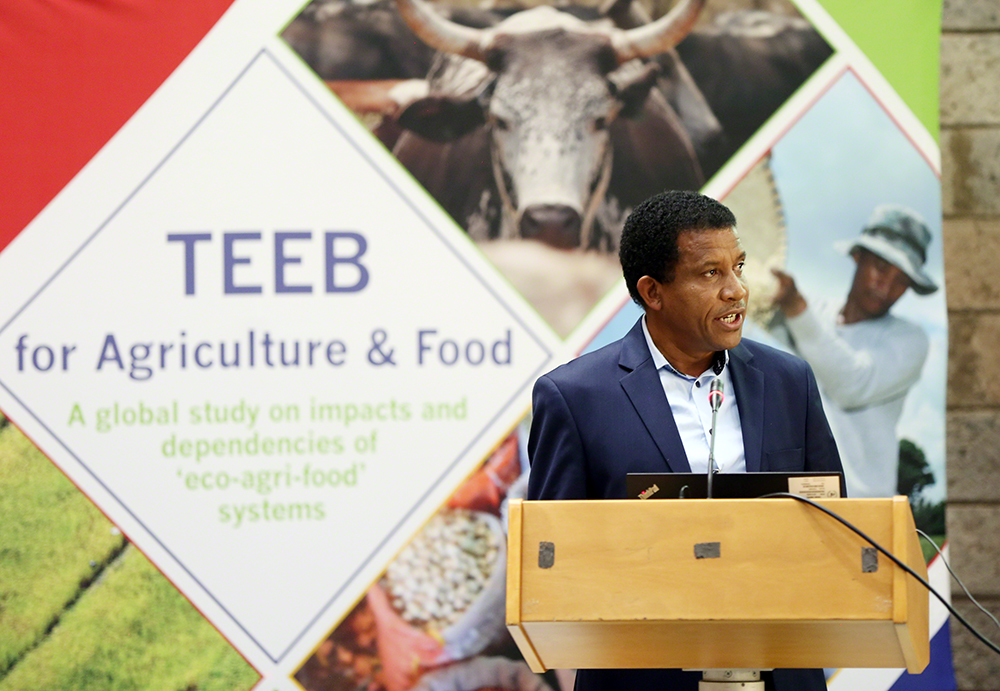
Joel Nobert, University of Dar es Salaam, Tanzania
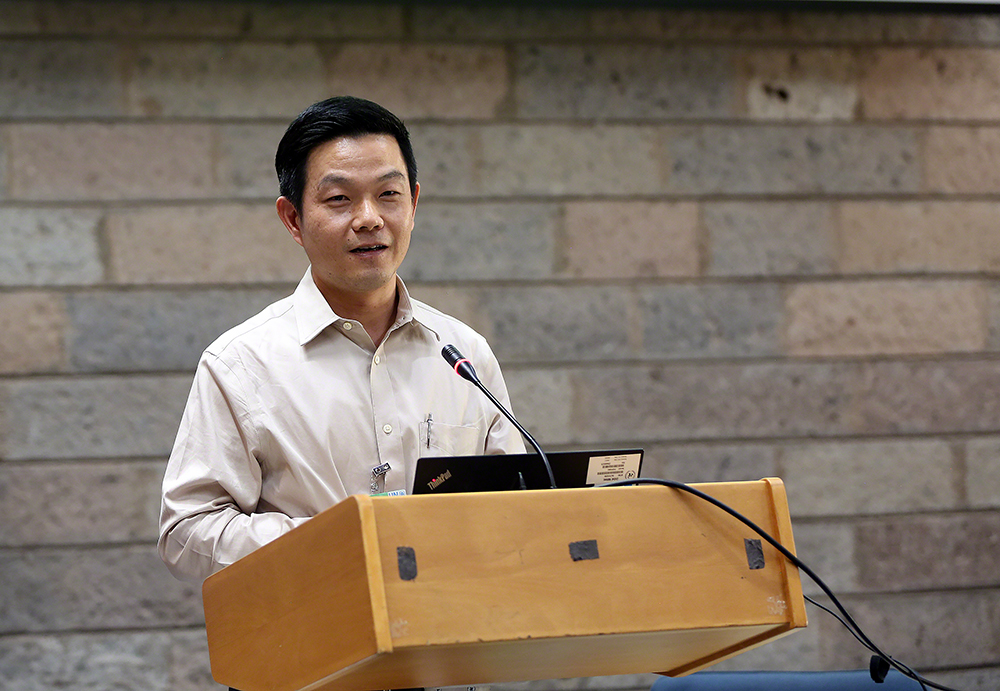
Phumsith Mahasuweerachai, Khon Kaen University, Thailand

Participants in a breakout session discussing how to apply the TEEBAgriFood Evaluation Framework at the country level
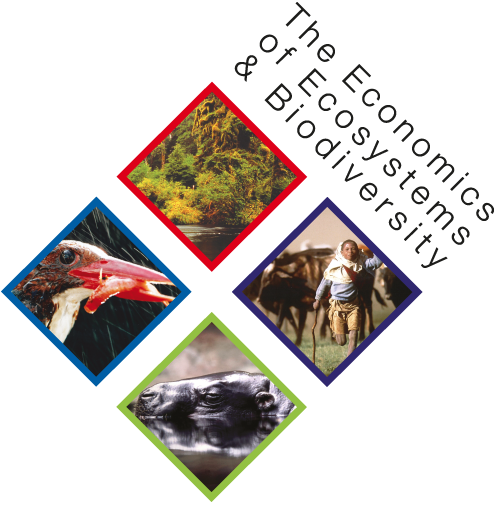 The formal opening of the TEEBAgriFood Global Symposium 2019 took place on Tuesday morning with opening statements by Joyce Msuya, Acting Executive Director, UNEP, and Pavan Sukhdev, President, WWF International and UNEP Goodwill Ambassador.
In the day's plenary presentations, TEEBAgriFood study leaders and co-authors provided an overview of key messages from the of the TEEBAgriFood Scientific and Economic Foundations Report.
The formal opening of the TEEBAgriFood Global Symposium 2019 took place on Tuesday morning with opening statements by Joyce Msuya, Acting Executive Director, UNEP, and Pavan Sukhdev, President, WWF International and UNEP Goodwill Ambassador.
In the day's plenary presentations, TEEBAgriFood study leaders and co-authors provided an overview of key messages from the of the TEEBAgriFood Scientific and Economic Foundations Report.
- Salman Hussain, Coordinator, TEEB, and Alexander Müller, TEEBAgriFood Study Leader, discussed the historical evolution and objectives of the TEEBAgrifood project and outlined the agenda and expected outcomes of the Symposium;
- Barbara Gemmill-Herren, World Agroforestry Centre (ICRAF), discussed chapter 3 of the Scientific and Economic Foundations Report, on ‘eco-agri-food systems’;
- Kavita Sharma, ETH Zurich, Switzerland, introduced chapter 6 on the evaluation framework and explained how to practically apply the framework;
- Lauren Baker, Global Alliance for the Future of Food, discussed how to pilot test the Framework and build a community of practice on eco-agri-food systems;
- Harpinder Sandhu, Flinders University, Australia, discussed chapter 8 on “Applying the Framework.”
Findings from three country case studies were also presented, covering maize production in Mexico, Ecuador and the US, livestock and soy/maize production in the Brazilian Amazon and wheat in Northern India.
In both the morning and afternoon, participants convened separated into smaller groups to undertake a practical exercise in using the TEEBAgriFood evaluation framework and explore its application to different scenarios and country contexts.
IISD Reporting Services, through its ENB+ Meeting Coverage, has provided daily web coverage and a summary report from the TEEB for Agriculture & Food International Symposium, which is available in HTML and PDF.
Photos by IISD/ENB | Francis Dejon
For photo reprint permissions, please follow instructions at our Attribution Regulations for Meeting Photo Usage Page.
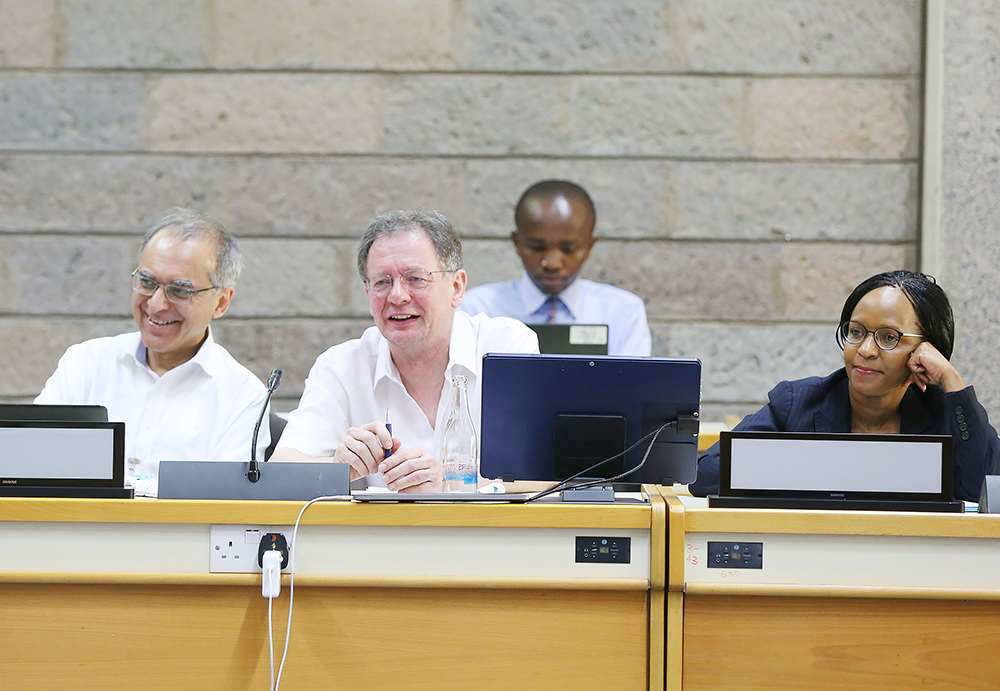
L-R: Dais during the opening of the Symposium with Pavan Sukhdev, President, WWF International Board; Alexander Müller, TEEB AgriFood Study Leader; and Joyce Msuya, Acting Executive Director, UNEP
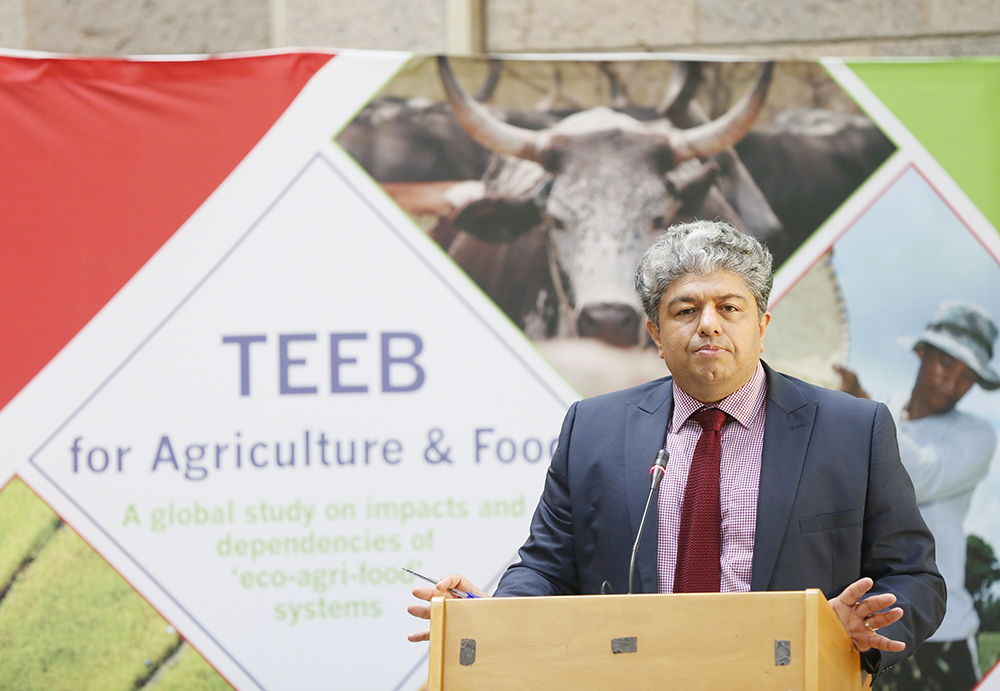
Salman Hussain, TEEB, UNEP
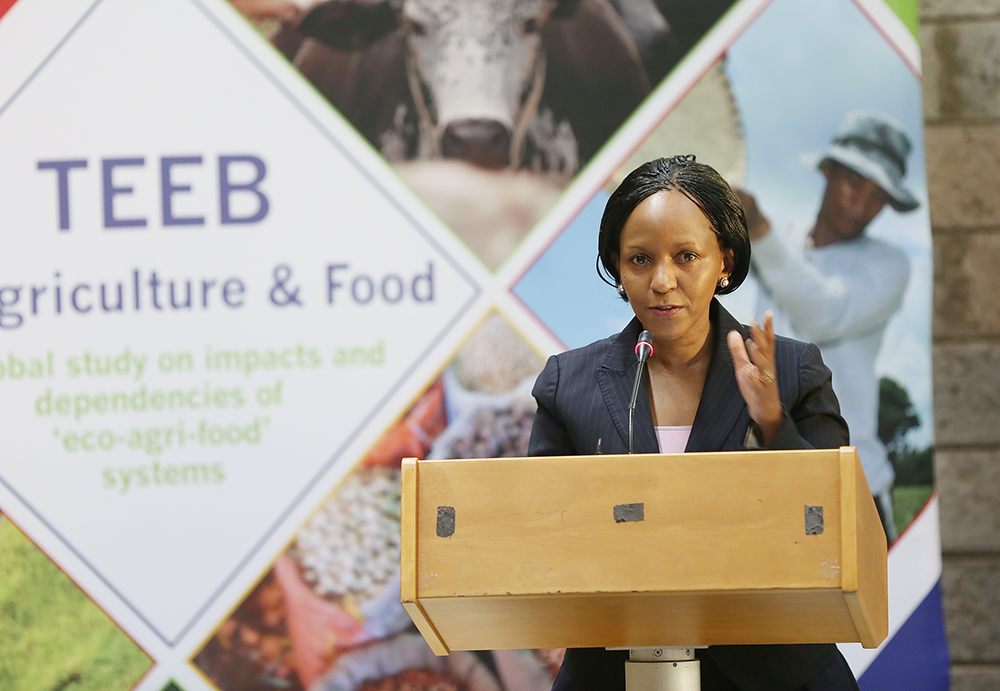
Joyce Msuya, Acting Executive Director, UNEP
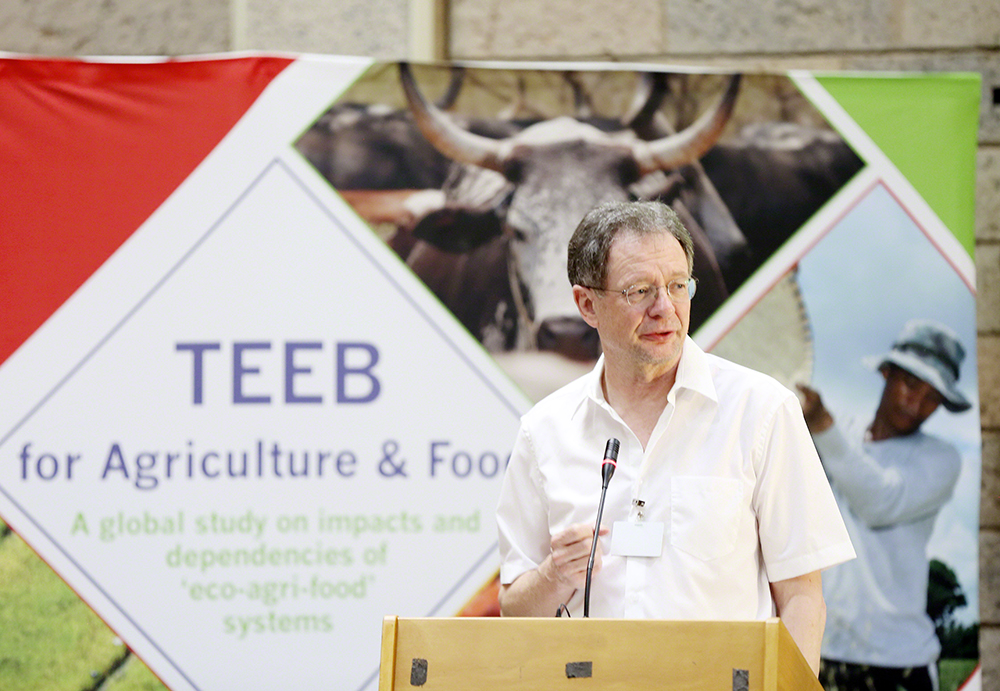
Alexander Müller, TEEB AgriFood Study Leader
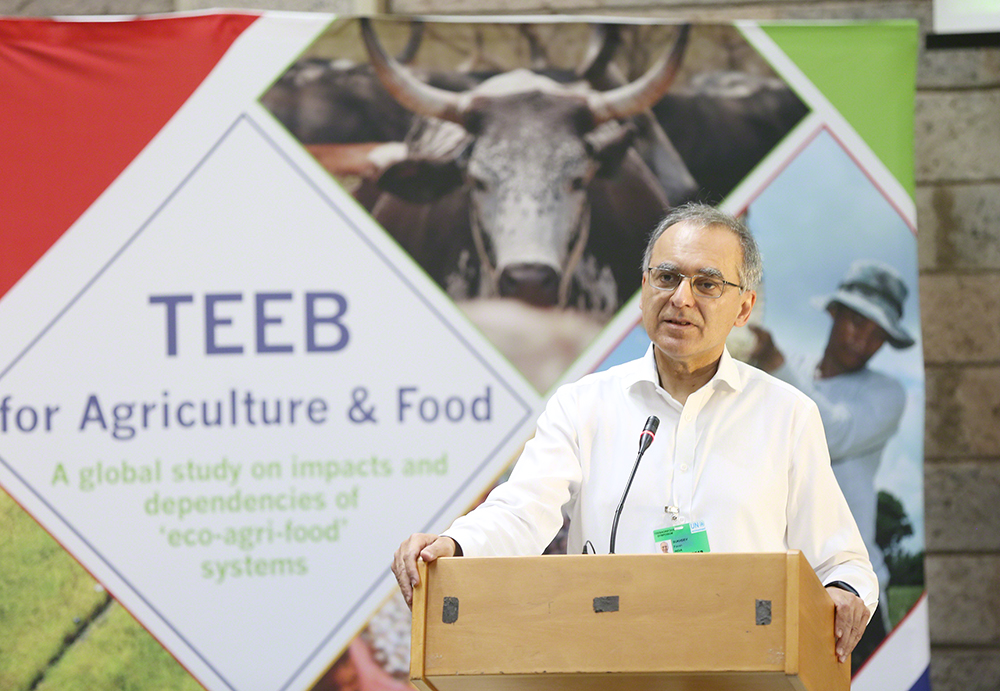
Pavan Sukhdev, President, WWF International Board
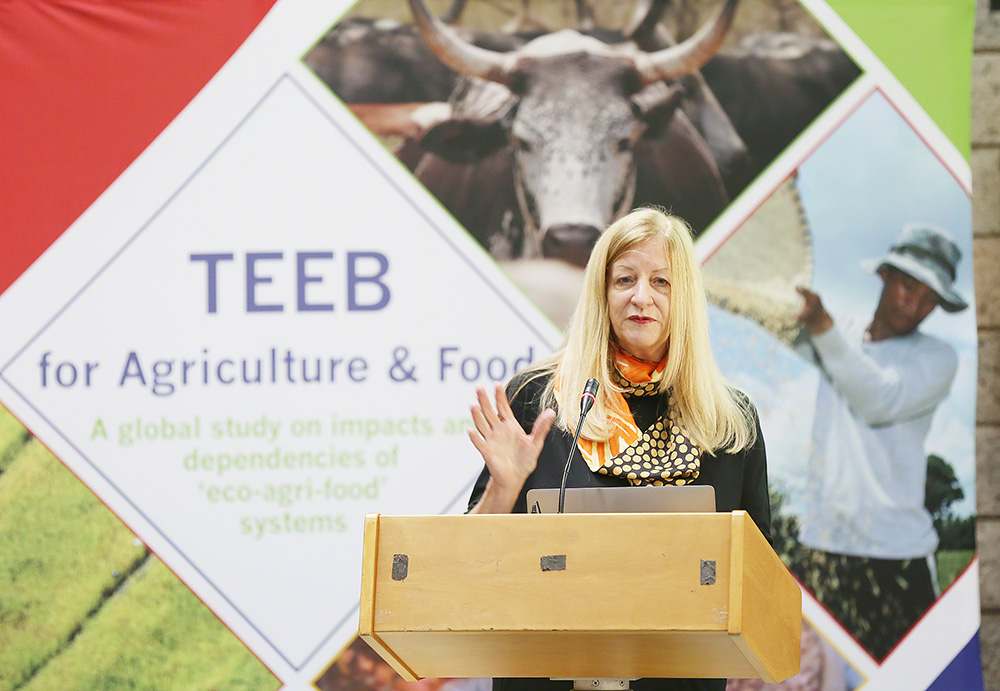
Barbara Gemill-Herren, World Agroforestry Centre
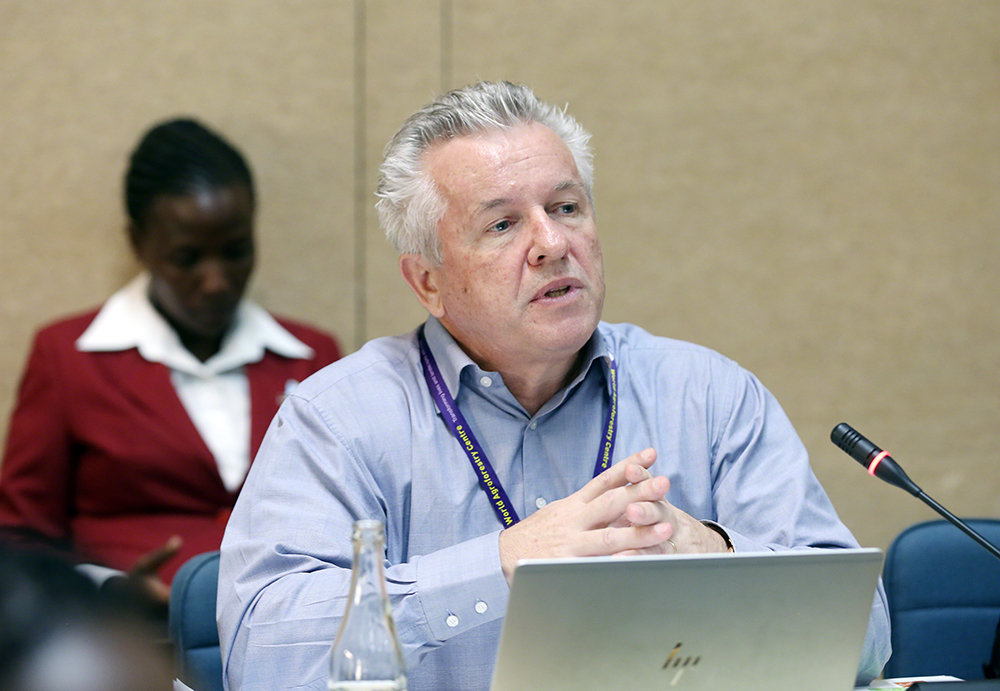
Tony Simons, Director General, World Agroforestry Centre
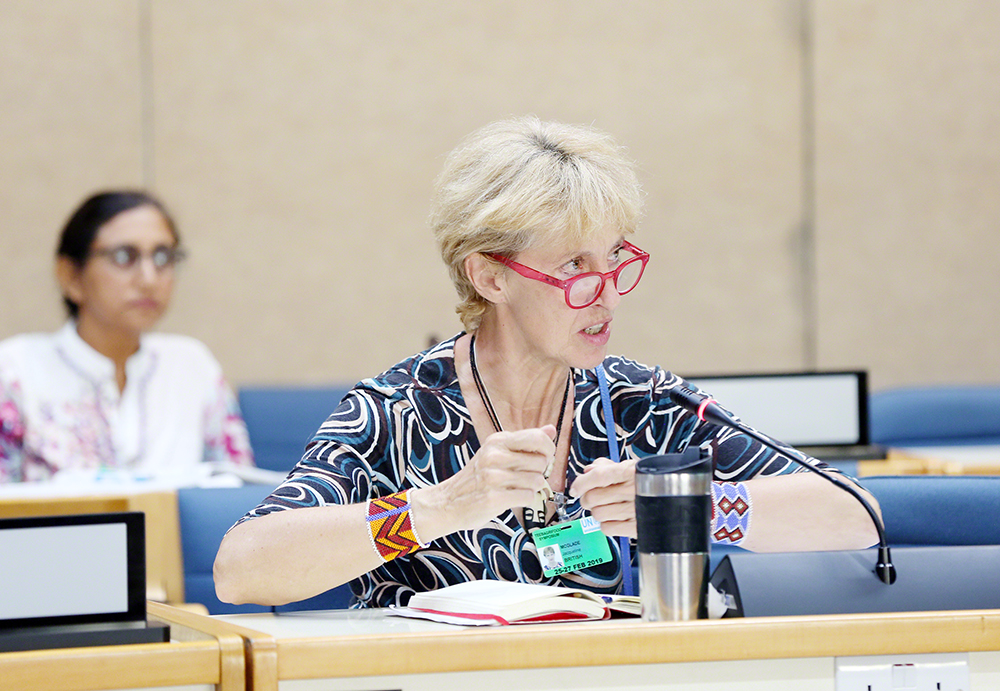
Jacqueline McGlade, Maasai Mara University, Kenya
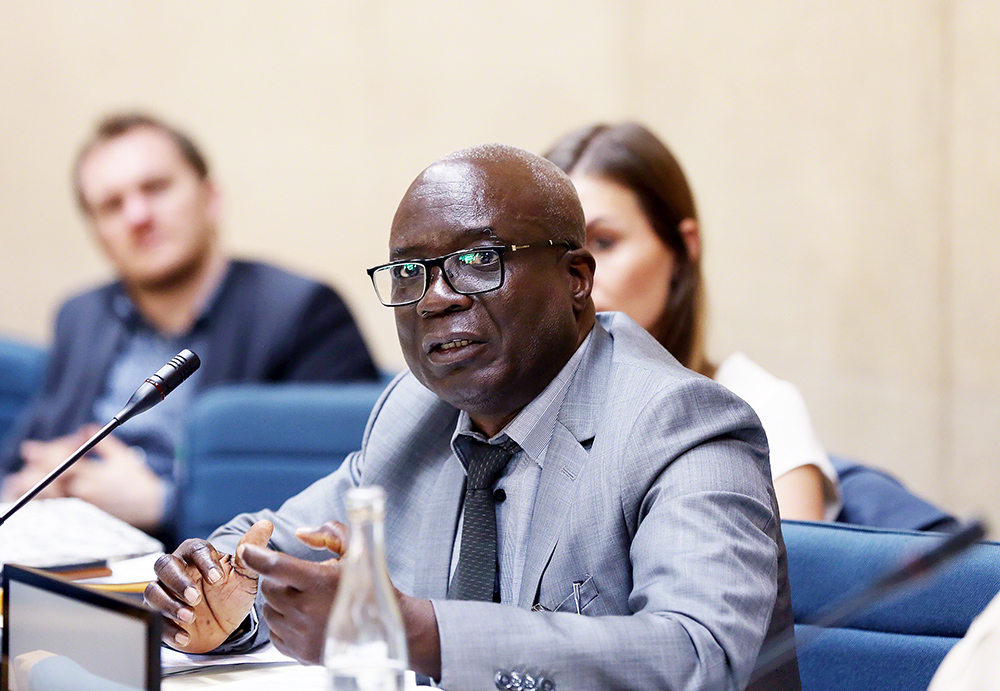
El Hadji Traore, Senegal
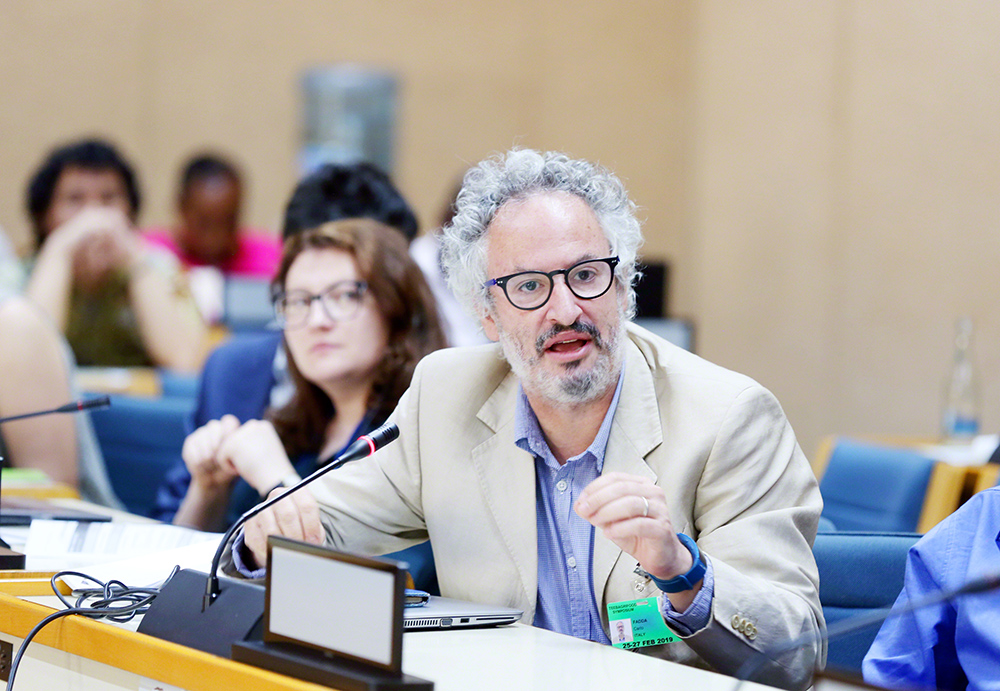
Carlo Fadda, Bioversity International
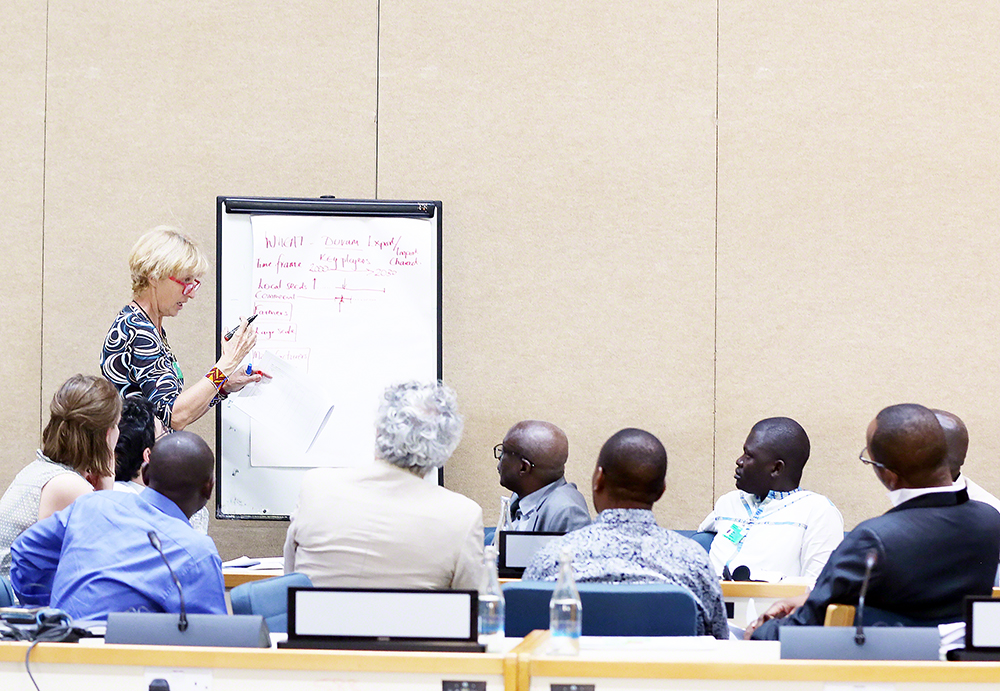
Jacqueline McGlade, Maasai Mara University, Kenya, with participants from a breakout group
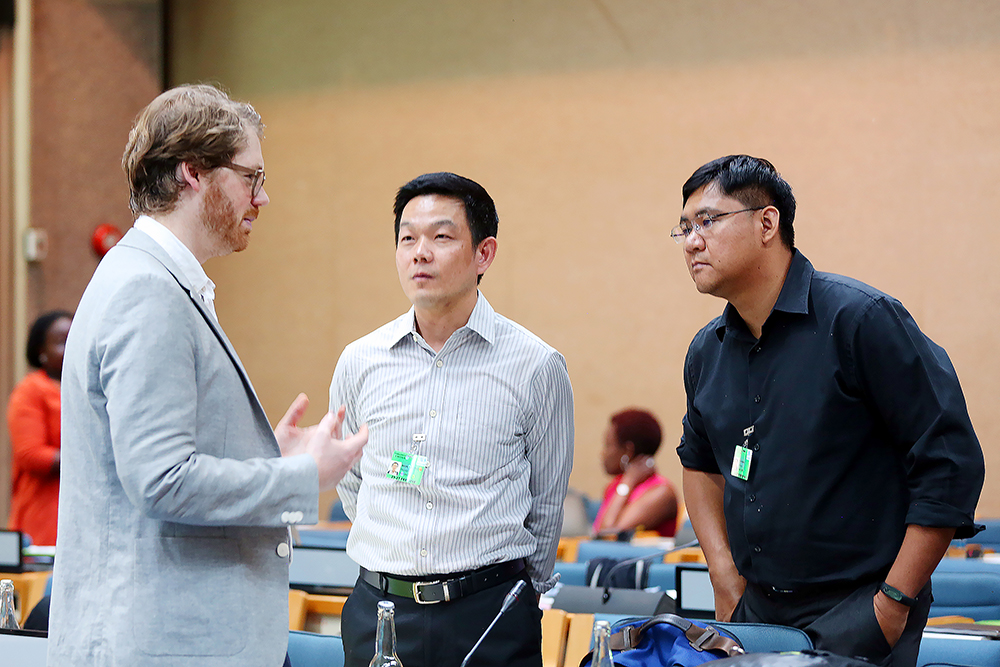
L-R: Tomas Declercq, TEEB; Phumsith Mahasuweerachai and Jakrapun Suksawat, Khon Kaen University, Thailand
 The Economics of Ecosystems & Biodiversity for Agriculture and Food (TEEBAgriFood) Global Symposium 2019 opened today at the UN Environment Programme (UNEP) Headquarters in Nairobi, Kenya. Opening the session, Salman Hussein, TEEB Coordinator, UNEP, noted that the TEEBAgriFood Evaluation Framework is intended to improve assessment of costs and benefits of “eco-agri-food” systems in order to achieve positive outcomes for farmers and consumers as well as for biodiversity and ecosystem services. He said that the Symposium would provide participants with hands-on experience on how to apply the TEEB approach in their respective countries.
The Economics of Ecosystems & Biodiversity for Agriculture and Food (TEEBAgriFood) Global Symposium 2019 opened today at the UN Environment Programme (UNEP) Headquarters in Nairobi, Kenya. Opening the session, Salman Hussein, TEEB Coordinator, UNEP, noted that the TEEBAgriFood Evaluation Framework is intended to improve assessment of costs and benefits of “eco-agri-food” systems in order to achieve positive outcomes for farmers and consumers as well as for biodiversity and ecosystem services. He said that the Symposium would provide participants with hands-on experience on how to apply the TEEB approach in their respective countries.
Thereafter, two break-out sessions took place during which participants exchanged country experiences from the following two TEEBAgriFood pilot projects:
- Supporting biodiversity and climate-friendly land management in agricultural landscapes in Colombia, Tanzania, Kenya and Thailand, funded by the International Climate Initiative (IKI) of the German Federal Ministry for the Environment, Nature Conservation, Building and Nuclear Safety (BMU).
- Promoting a sustainable agriculture and food sector in Brazil, China, India, Indonesia, Malaysia, Mexico and Thailand, funded by the European Union Partnership Instrument.
During a lunchtime side event entitled ‘Planet Unplugged,' participants explored the hidden costs and benefits of eco-agri-food systems, drawing on key messages from the TEEBAgrifood Science and Economic Foundations Report.
In the afternoon, participants took part in a communications and media outreach training facilitated by the International Institute for Sustainable Development (IISD). The objective of the training was to enable project partners to effectively disseminate key messages from TEEBAgriFood pilot projects targeted at both policy makers and the general public.
IISD Reporting Services, through its ENB+ Meeting Coverage, has provided daily web coverage and a summary report from the TEEB for Agriculture & Food International Symposium, which is available in HTML and PDF.
Photos by IISD/ENB | Francis Dejon
For photo reprint permissions, please follow instructions at our Attribution Regulations for Meeting Photo Usage Page
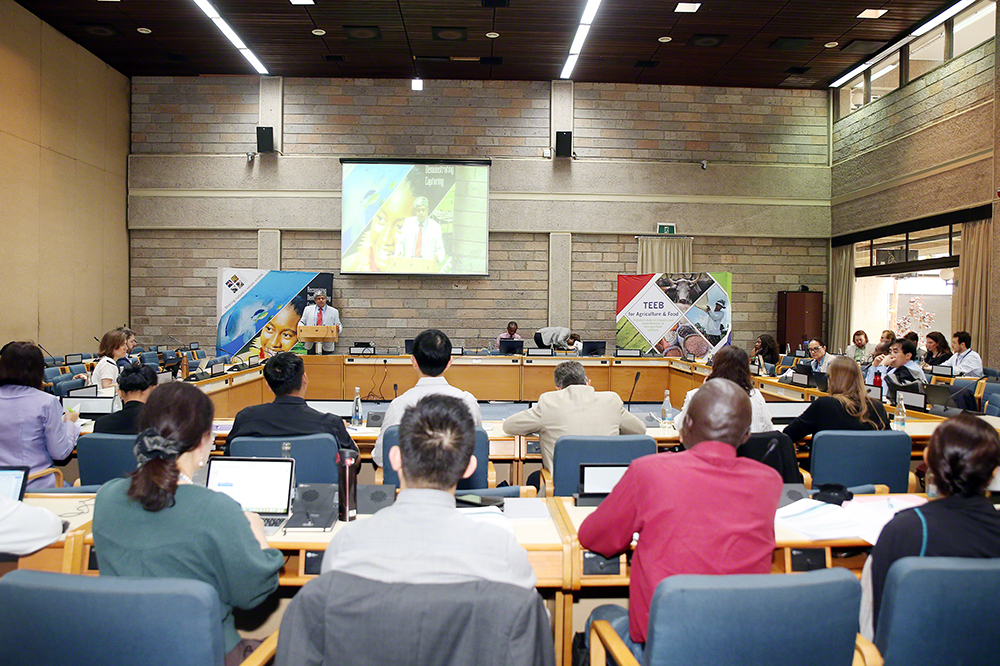
Opening of the pre-Symposium workshop
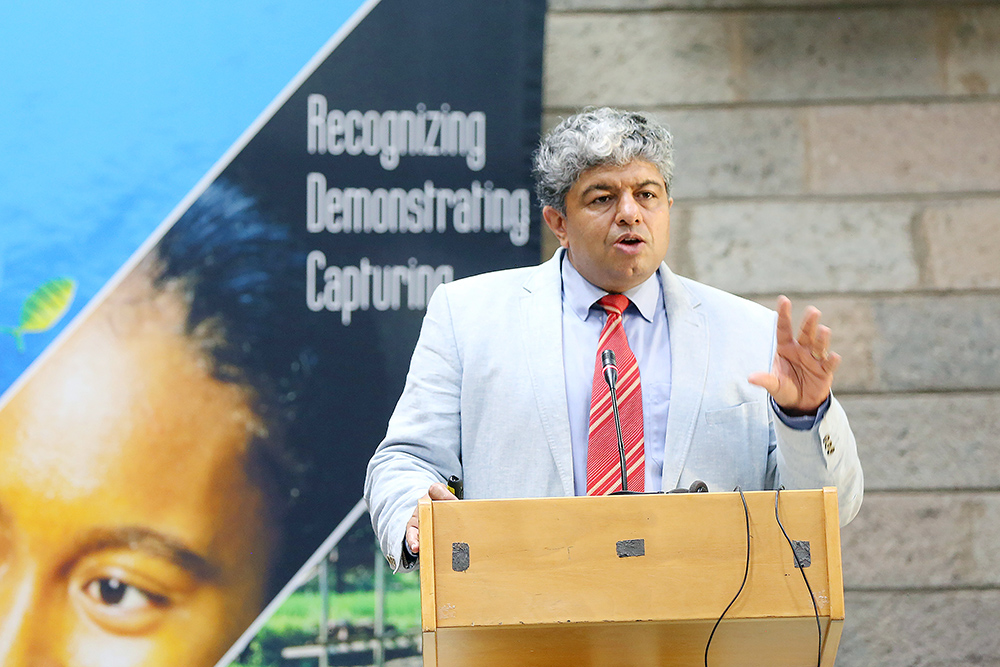
Salman Hussain, Coordinator, The Economics of Ecosystems and Biodiversity (TEEB), UNEP
Breakout Session on International Climate Initiative (IKI) Project
Breakout Session on European Union Partnership Instrument (EU-PI) Project
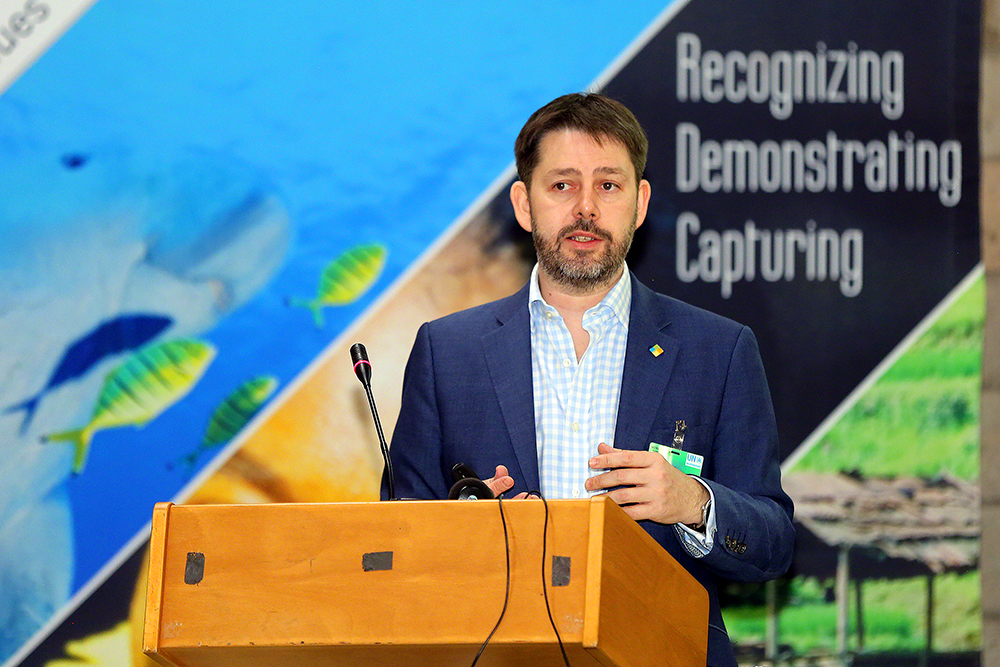
Mark Gough, Natural Capital Coalition
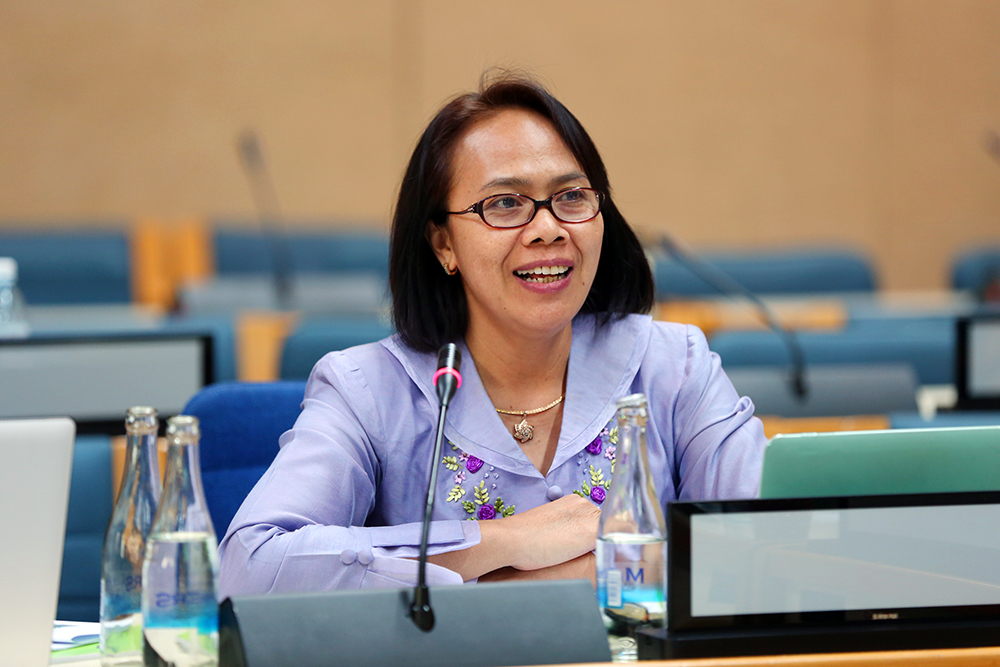
Hesti Lestari Tata, Indonesia
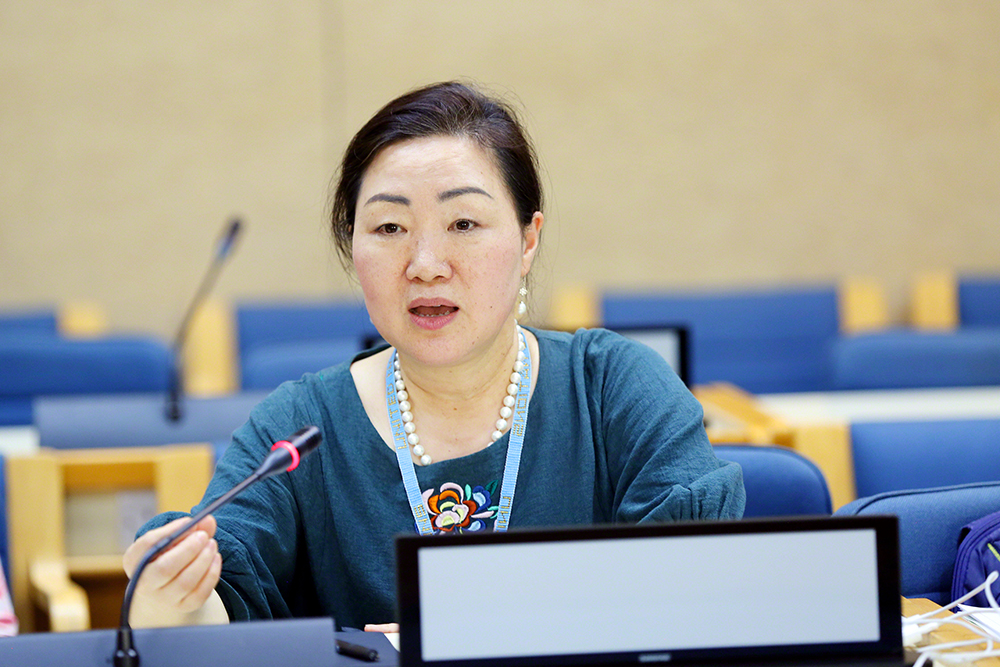
Linxiu Zhang, International Ecosystem Management Partnership, UNEP
